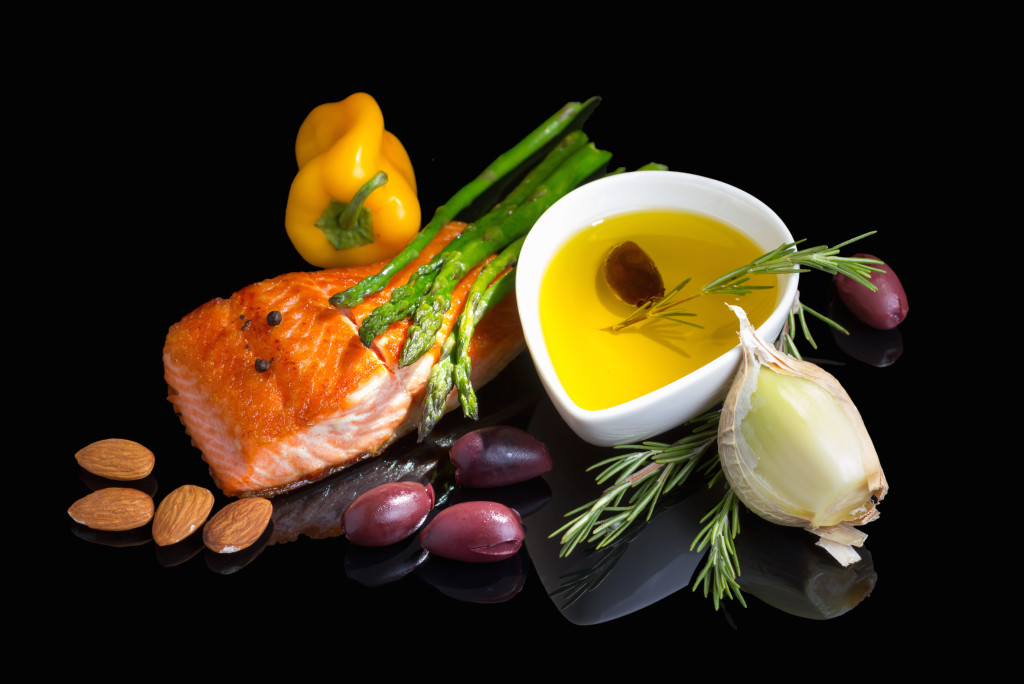What do a bloated belly, sore joints, and unexplained fatigue all have in common? Well, for one thing, these are all signs of possible inflammation in the body. Second, having these symptoms may indicate that you have some sort of immune system issue that’s causing you trouble.
Roughly 23 million Americans suffer from autoimmune disorders, and autoimmune issues are the 2nd leading cause of chronic illness in the nation. An anti-inflammatory diet is key in preventing autoimmune disorders and chronic disease management, and so if you’re interested in getting the low-down on anti-inflammatory foods that will promote wellness and keep autoimmune disorders at bay, read onward!
What are Autoimmune Disorders?
From Crohn’s disease and irritable bowel syndrome to celiac disease, autoimmune disorders cause inflammation in the body that varies from person to person. Some people, for example those with celiac disease, have to follow a gluten-free diet, while others may find that switching to an appropriate anti-inflammatory diet means simply adding a few specific veggies and spices into their meals.
It may seem daunting to switch to an anti-inflammatory diet, but there are loads of delicious ingredients that help your immune system do its job, and adding them to your shopping list is a great way to take steps toward preventing autoimmune disorders, inflammation, or to manage a chronic health condition.
How Autoimmune Disorders Affect You
Normally, your immune system is helpful in fighting off disease and infection, it helps you heal after injury, and keeps you feeling healthy and well. The immune system is complex and can launch a host of defenses in case a foreign invader (like harmful viruses or bacteria) attacks your body.
However, in the case of autoimmune disorders, the immune system gets confused and attacks tissues in the body or reacts aggressively toward an outside influence that is not actually a serious threat. The medical community recognizes more than 80 autoimmune disorders, including rheumatoid arthritis, type I diabetes, lupus, multiple sclerosis, and chronic irritable bowel disease. But what is really going on in the body that causes autoimmune disorders?
As a simple example, think about poison ivy. The oil in poison ivy that causes us to get a nasty rash is harmless, but the immune system thinks it’s a threat and launches a response to combat it, which is why some people end up itchy, rashy, and miserable after coming into contact with the plant during a hike in the woods or doing chores in the yard.
Reasons to Change Your Diet
Inflammation and pain caused by an autoimmune disorder aren’t the only reasons to choose an anti-inflammatory diet. If your immune system is always in hyperdrive, the constant production of immune cells can lead to permanent damage and long-term diseases like cancer, heart disease, and Alzheimer’s. This is why talking with a registered dietitian about chronic disease management and controlling autoimmune disorders can lead to a discussion about how to implement a diet rich in anti-inflammatory foods.
Preventing autoimmune disorders and treating them is a complex matter, but an anti-inflammatory diet is a good way to give your immune system a helping hand, either by eliminating foods that cause the immune system to over-react or attack the body, or by eating foods that soothe and prevent inflammation.
Is a Gluten Free Diet Right For You?
Some people benefit greatly from a gluten free diet because gluten is a protein that may cause inflammation in the bowel and other parts of the body. People on gluten free diets need to avoid products that contain wheat and a grain called triticale. Triticale is a recently developed grain that has a lot of the same qualities as wheat, and it’s included in a lot of commercial breads, cereals, pasta, and baked snacks.
For people diagnosed with celiac disease (which is characterized by an extremely negative reaction to gluten), they often suffer intestinal damage unless they embrace a gluten free diet. In recent years, even people without celiac disease can still be sensitive to gluten, experiencing bloating, diarrhea, depression, “foggy mind,” and other symptoms when they eat food with gluten in it.
If you have an auto-immune disorder that is exasperated by gluten, you may want to talk with your dietitian about a gluten free diet. People on gluten free diets replace gluten-containing foods with fruits, vegetables, lean meats, fish, dairy products, nuts and beans, and a gluten free diet plan usually includes a lot of the anti-inflammatory foods recommended below.
Anti-Inflammatory Foods – Your Healthy Hit List
Here are some of the best anti-inflammatory foods to include in your diet to help with chronic disease management and to prevent autoimmune disorders.
- Delicious dark greens: Veggies like spinach, broccoli, kale, and collard greens are rich in calcium, iron, and vitamin E. Iron and calcium in particular help the body fight disease and stay inflammation-free.
- Salmon, tuna, and sardines (oh my!): These fish are rich in Omega-3 fatty acids, which help reduce inflammation. If you’re not a fish fanatic, you can still get a good boost of autoimmune disorder prevention from taking fish oil supplements. Studies on the beneficial effects of Omega-3 fatty acids have been conducted on patients with Crohn’s disease, Lupus, and other autoimmune disorders.
- Brown rice and whole grains: One of the keys in maintaining an anti-inflammatory diet is to choose grains and cereals that are lower in sugar and carbohydrates, which can be difficult for your body to process, especially if you are gluten sensitive. Next time you order Chinese takeout, try to get brown rice instead of white, and stock your pantry with low-sugar grain products like bulgur wheat, steel-cut oatmeal, pure barley, pure rye or whole grain bread.
- Olive oil: Olive oil is full of heart-healthy monounsaturated fats and contains a chemical called oleocanthal, which helps reduce inflammation and pain. It’s also got an antioxidant kick that may help prevent autoimmune disorders and help with chronic disease management.
- Tomatoes: The humble tomato is a an anti-inflammatory food that contains lycopenes, which reduces inflammation (especially in your lungs!).
- Beans: Besides being the, ahem, musical fruit, beans are an excellent source of slowly digested, healthy protein, and as such they’re a great choice for gluten free diets and they contain anti-inflammatory and antioxidant compounds. As a bonus, bean protein and fiber make you feel full for longer, which can help you lose weight if that’s one of your goals.
- Nuts and seeds: Almonds, pistachios, and other nuts and seeds contain anti-inflammatory monounsaturated fats, protein, and fiber.
- Turmeric and ginger: These spices can add an anti-inflammatory punch to your meals and can help decrease inflammation. Besides, they’re super flavorful and can add a lot of zest to your diet.
Be sure to talk with your registered dietician to help you determine the right portions of these anti-inflammatories for your diet.
Sources:
http://www.health.harvard.edu/staying-healthy/foods-that-fight-inflammation
http://www.todaysdietitian.com/newarchives/110211p36.shtml
http://www.drweil.com/drw/u/ART02012/anti-inflammatory-diet
http://www.hsph.harvard.edu/nutritionsource/carbohydrates/
http://www.bio.umass.edu/micro/immunology/poisoniv.htm
http://www.huffingtonpost.com/2013/03/21/inflammatory-foods-worst-inflammation_n_2838643.html
https://celiac.org/live-gluten-free/glutenfreediet/food-options/



